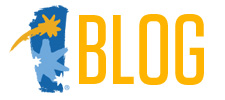A brand new year often inspires positive life changes such as getting back on track…in your health, in your career, and even in your finances. If you’ve been accumulating a bunch of loans with high interest rates and huge monthly payments, here’s how to eliminate the burden.
Determine where you stand.
In order to solve a problem, you first need to fully understand it. Assess your situation by listing all your debts, including balances owed, interest rates and minimum payments required for each. Next, obtain a free credit report to make sure you haven’t forgotten any debt or overlooked errors. Finally, compare your income and expenses and calculate how much you can realistically use toward debt reduction each month.
Don’t pile on.
The last thing you need is anything that increases your debt. Commit to not taking out any new loans or credit lines and, if possible, avoid incurring and charging additional expenses on existing accounts.
Take time for triage .
You’ll save more in the long run by paying off debts with the highest interest rates first. This category usually includes consumer debt such as credit cards, personal or payday loans, and medical bills. Other types of debt, such as mortgages, car loans and student loans, typically have lower rates, making it more affordable to pay them off over a longer period. Throw as much money as you can each month at your highest-interest debt while still making timely, smaller payments on everything else. Then focus on paying down the next higher-interest loan.
Consolidate where you can.
When multiple debts are out of control, debt consolidation can be a lifeline. This refinancing process streamlines debts into a single monthly bill, often with lower interest and a smaller overall monthly outlay. This may help eliminate debt faster and less expensively. Home equity financing, personal loans and zero-interest balance transfer credit cards may provide effective options. Talk to an MSC to see what we can do for you. It’s important to know that there are options and sometimes all it takes is to ask the question.
Improve cash flow .
Even the best debt-reduction plans are useless without having enough money. Do the following to improve your cash flow:
- Bring bag lunches to work and eat fewer restaurant meals.
- Try free and inexpensive entertainment including library rentals, parks and hiking trails, as well as local theater, concerts and sporting events.
- Sell unwanted items online or at yard sales.
- Take on additional part-time employment, ask for extra hours at work or turn hobbies into income.
- Negotiate lower prices for phone, internet, insurance and other consumer goods/services.

Set the odds in your favor.
Why work hard to pay off debt just to end up in the same boat next year? These approaches can help ensure lasting success in curbing expenses and avoid building up debt:
- Create a budget to keep future spending within your means.
- Continue to reduce unnecessary expenses.
- Commit to saving regularly, even if you can spare only a small amount each month, to protect against being thrown back into debt by unexpected events.
- Once credit cards are paid off, keep future balances low and try to pay them in full each month.
- Treat yourself to inexpensive rewards such as a new CD or ice cream to celebrate each important debt-reduction milestone.
Eliminating debt can bring dramatic changes over the coming year. In return, you’ll enjoy improved financial health, stress relief and the freedom to spend your paycheck on what really matters instead of having it siphoned away by past obligations. Don’t be afraid to ask for help along the way. Our Listening & Lending® program was created to give you a voice in your banking. Tell us your story!




